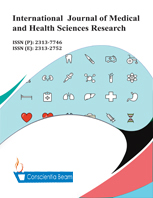Impact of Plant Oils as Antifungal Activity Against Fungal Pathogens of Cinnamomum Zeylanicum (Cinnamon)
Abstract
Eleven fungal species were isolated from cinnamon plant, and two fungal genera could not be identified because they failed to sponulate in pure cultures. The identified species of fungi belonged to the genera Curvularia, Helminthosporium, Pestalotiopsis, Aspergillus, Rhizopus, Cladosporium, Nigrospora and Trichoderma.The effects of plant oils and synthetic fungicides were studied in a series of experiments against fungal pathogens of Cinnamon. The present results indicated a range of plant oils over the concentration range of 0.1-3% is capable of inhibiting fungal spore germination on Cinnamon. Several oils were shown to be more efficient than the synthetic fungicide Amister at field concentrations. The oils of cinnamon bark and clove provided the greatest inhibition of spore germination of most of the fungal provided the greeted inhibition of spore germination of most of the fungal species tested. Cinnamon oils completely inhibited spore germination of most fungi over the whole range of concentrations tested, and especially at low concentration. Also, the results revealed tea-tree oil (TO) significantly inhibited germination of all of the fungi isolated from cinnamon at concentrations of 0.1 or o.2% with the exception of Curvularia inaequalis which responded only at the highest concentration (3%). lemon grass oil (LgO) provided that complete inhibition of Pestalotiopsis (C21) spore germination occurred at all concentrations tested. Meanwhile, complete inhibition of germination on Curvularia sp. (C30) occurred at 1 or 3 concentration. I can concluded that the oil lemon grass greatest suppress the germination of fungi isolated from Cinnamon.

